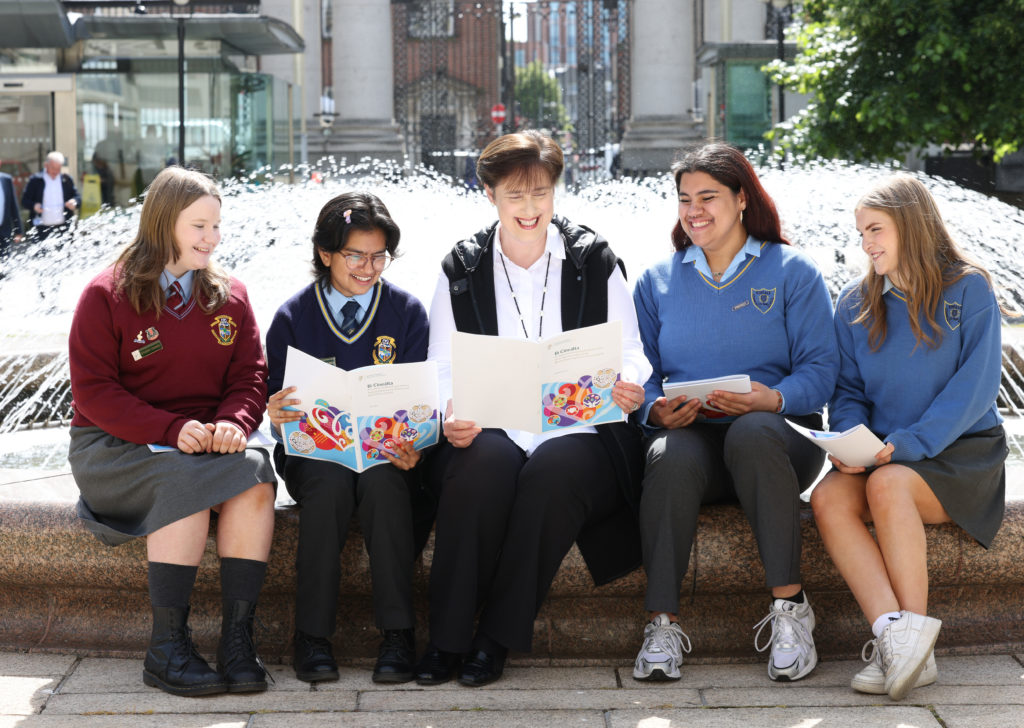A NATIONWIDE scheme has been launched to tackle bullying in schools across Ireland.
Minister for Education Norma Foley launched the ‘Bí Cineálta' (Be Kind) procedures to prevent and address bullying behaviour for primary, post-primary and special schools' this week, following a report which found a third of children in schools across the country feel “unwelcome” in their educational establishment.
A review of the 2013 ‘Anti-bullying procedures for primary and post-primary schools’ was released this week.
The report is based on survey responses from 106 primary, post-primary and special schools, including 2,346 children and young people, 3,378 parents, 812 teachers and 64 principals.
It reveals that while schools are widely seen as mostly positive environments “challenges remain, especially in post-primary education, where a significant number of students (almost one-third) feel unwelcome”.
“Many post-primary students surveyed expressed concerns about the effectiveness of schools in managing bullying behaviour,” the report adds.
 Minister for Education Norma Foley announced the 'Be Kind' procedures this week
Minister for Education Norma Foley announced the 'Be Kind' procedures this weekResponding to the findings, Minister Foley’s new anti-bullying procedures are centred on a “child rights-based approach and support a partnership approach where all members of the school community work together to prevent and address bullying behaviour” her department have confirmed.
“Every child deserves an experience in school that is safe, that is happy and that is inclusive,” Minister Foley said.
“We know that bullying can rob a child or young person of their happiness and satisfaction, and it can cause significant damage to them.
“These new procedures will provide schools with valuable resources and guidance on supporting students and on preventing and addressing bullying behaviour.”
The new procedures, which will start being implemented when schools return in September, include getting the entire school community to work together to “maintain a school culture where bullying behaviour is unacceptable”.
The new guidelines will require schools to tackle hidden spaces in hallways, around staircases and in the schoolyard, where there is a greater risk for bullying behaviour to occur.
Measures that can be considered in these cases include installing mirrors for greater visibility and planting shrubs to avoid students congregating, the report states.
The new procedures also require schools to support a ‘telling’ environment, where their anti-bullying guidelines are made clearly visible “to allow students to easily see what they need to do if they think they are being bullied, and what actions the school will take to help them”.
 Minister Foley picutred with students (l to r) Sarah Louise Jones, Ashvita Charlotte Harolikar, Giulia Moretto and Muireann O’Donovan
Minister Foley picutred with students (l to r) Sarah Louise Jones, Ashvita Charlotte Harolikar, Giulia Moretto and Muireann O’DonovanSchools will also be required to record every incident of bullying, which will then form part of a national database on bullying behaviour.
This information will be released in an annual national report, although it will not identify individual schools or students.
The increase in cyberbullying will also be addressed under the new procedures, with schools required to take action when this type of bullying is committed within school grounds.
“The sweeping increase in the reach of technology has offered children and young people access to a wealth of information, making learning engaging and effective,” Minister Foley said.
“However, we must recognise that technology can also be a tool used to cause hurt and pain.
“We therefore will embrace the positives of technology but we equally need to armour ourselves and the children in our care against the negative impacts.”
She added: “I acknowledge the extensive work that is being done across our schools to prevent and address bullying behaviour every single day.
“I would like to thank the education partners for the collaborative approach they have taken to develop these procedures.
“I would also like to thank everyone who provided input as part of the consultation process: school leaders, school staff, parents, board of management members and in particular, children and young people."

